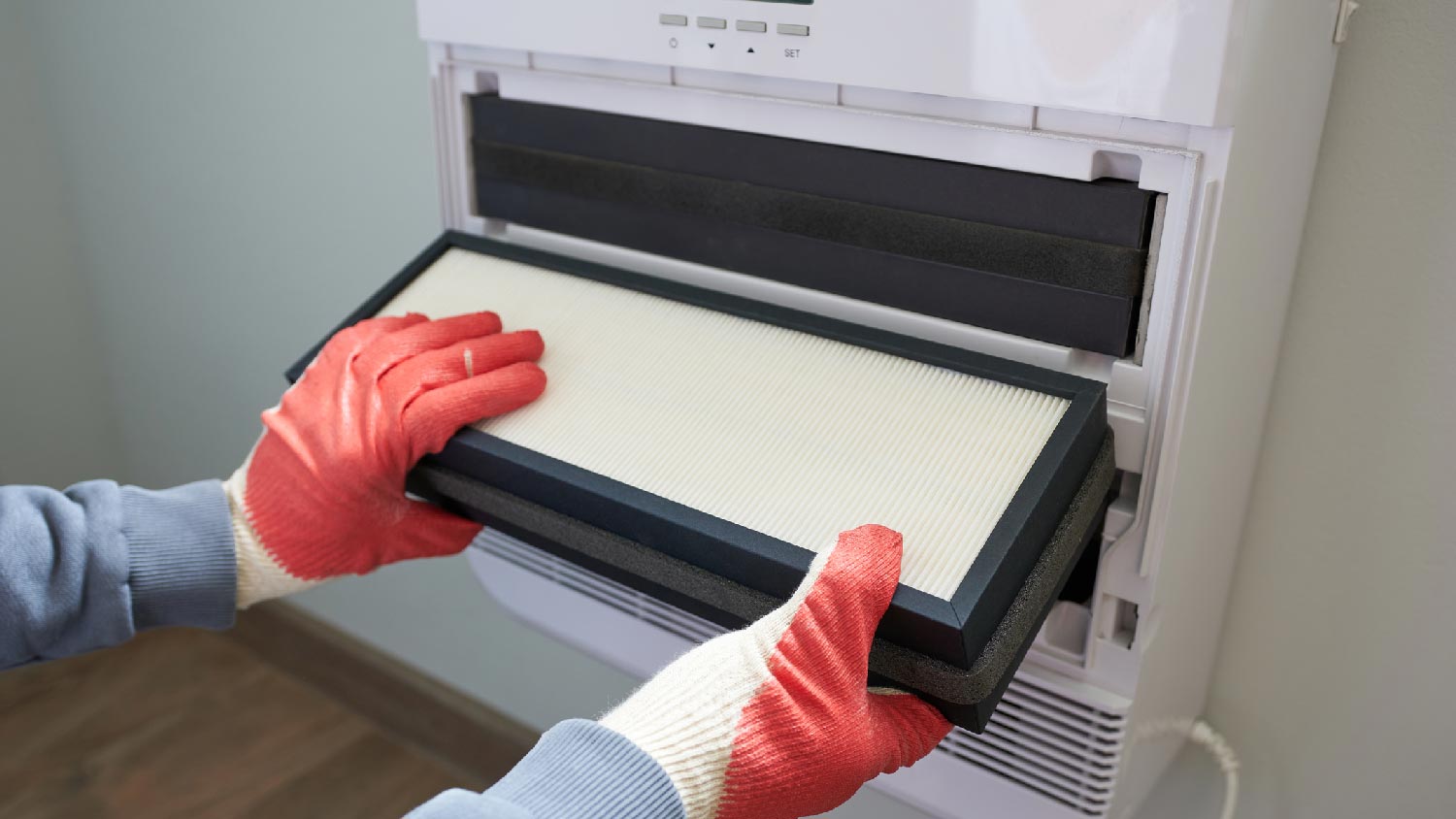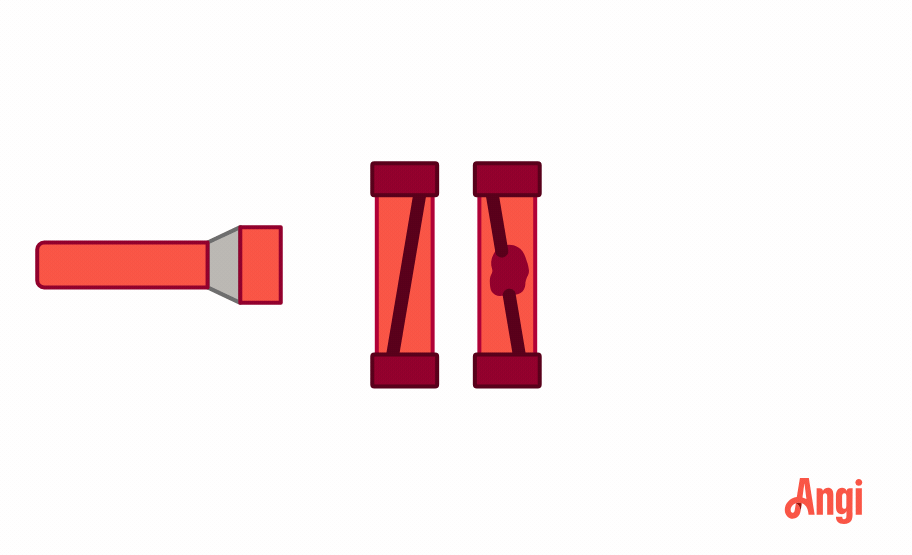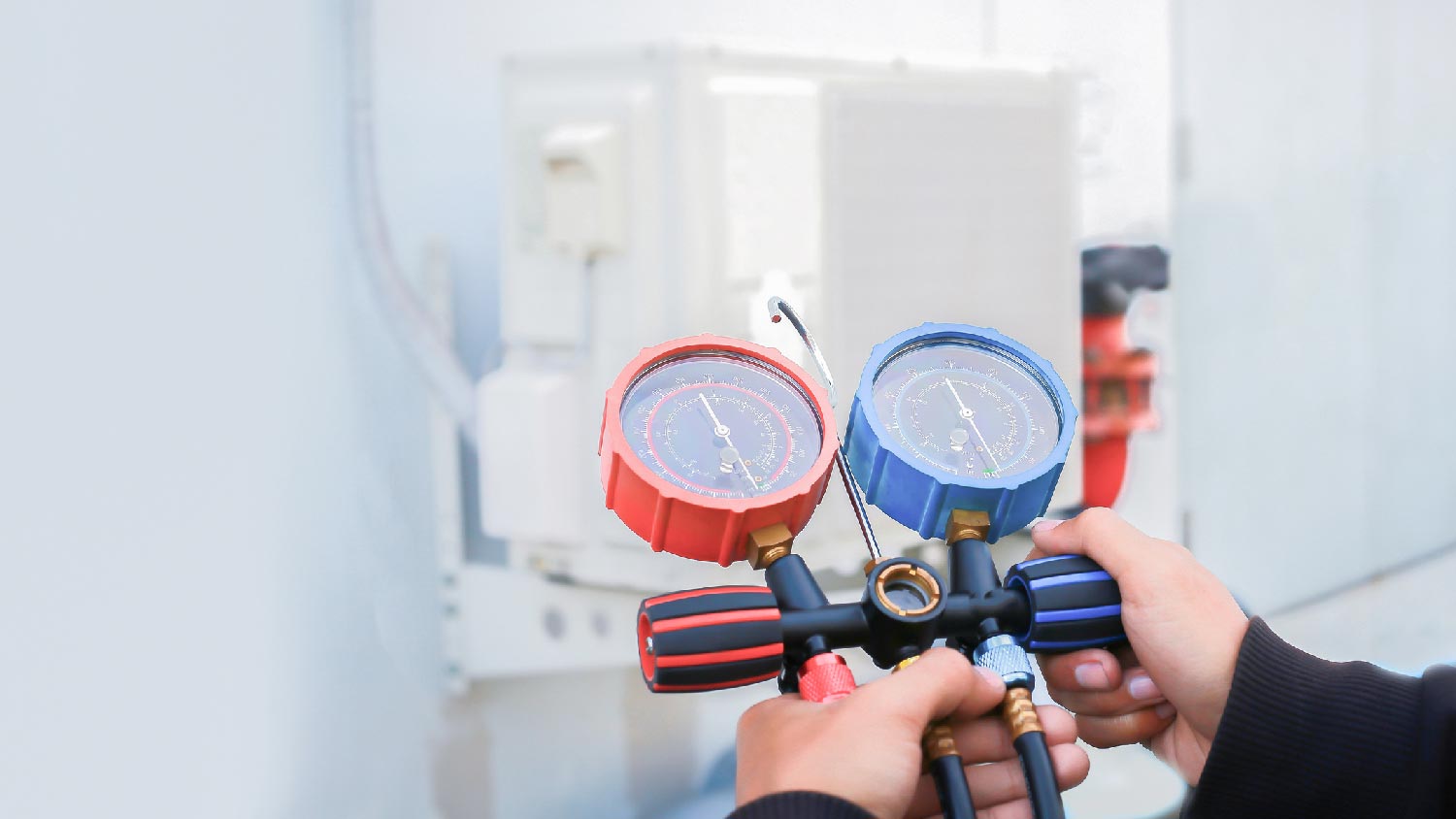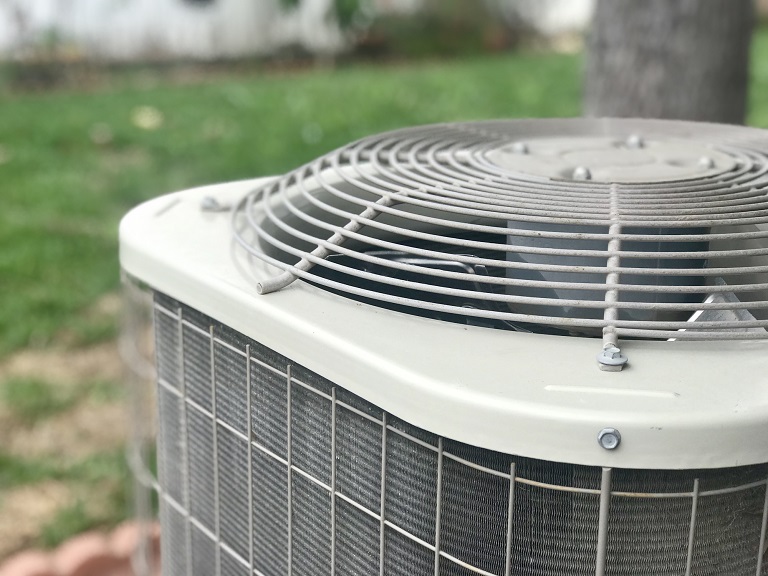
Gas furnace replacement costs depend on the type of furnace you want and installation fees. Our guide explains all the factors involved in a new furnace cost.
Don’t let your home lose its cool


“Automatic” modes on digital thermostats are a common reason the AC turns off by itself, but you can fix this by turning off the mode in the corresponding app.
Dirt easily obstructs AC components like coils and filters, but regular cleanings can keep the unit functional.
Certain mechanical and electrical issues cause short cycling and should only be handled by a pro.
The last thing anyone wants on a sweltering summer day is for their AC to keep turning off by itself. If this happens, your first instinct might be that the unit is on its last legs, but if you have central air or a newer unit, the underlying cause might be a simple fix or a complex issue that requires an HVAC professional. Here are six possible reasons why the air conditioner keeps turning off by itself and what you should look for before calling the pros.
The entire point of installing a smart thermostat is to regulate your home's temperature and keep it humming along with minimal input on your part. But even if you program a thermostat to your preferences and activity patterns, it can still go awry. Certain smart and digital thermostats are notorious for shutting off earlier than expected or turning the AC on and off when you don't want them to.
Your smart thermostat may need a power connector if it’s a recent installation and your analog thermostat worked just fine. Alternatively, you may need to check your connected app and see if you have automatic cooling modes set or if it’s still learning your household’s activity patterns. Turning off automatic modes might help. Otherwise, you should contact a local thermostat repair pro for help.

Can't figure out why you're sneezing nonstop with watery eyes, all while your AC keeps shutting itself off? You might have dirty air filters that need cleaning or replacement. Shut off your air conditioner so that you can take a look at the filter. If you pull out a filter that looks like a literal Dust Bowl, that might be your culprit for why the unit keeps short cycling.
Dirty air filters cause a host of problems, including restricting the airflow in your home. When an air conditioner can't freely pull air in and out, the restricted airflow turns toward the coils inside the unit, causing them to freeze. This makes the air conditioner turn off by itself. Cleaning the air filter or replacing it might solve the problem. Even if the problem persists, it's still a good idea to clean the filter so that it doesn't worsen both airflow and allergy issues.
Condenser coils can freeze for a number of reasons. But they can also overheat since they don’t have much protection from the elements. Condenser coils are located outdoors, and if you've ever stood next to them while the AC was running, they feel incredibly hot because they release heat from inside your home.
If your air conditioner keeps turning off by itself, the condenser coils could be overheating. They're exposed to the elements year-round, so layers of grime, dust, and other debris accumulate. The condenser coils could need a good cleaning if they’re overheating from trying to function through a blockage.
AC compressors are a mechanical element of air conditioners. They generate the pressure that refrigerant needs to emit cold air after absorbing the heat from your home. Compressors can also overheat for many reasons, like dirty HVAC parts and low refrigerant. Compressors also wear out over time, as all mechanical parts do. If your AC randomly shuts off, a worn-out compressor could be the cause.

Electrical problems can cause your air conditioner to keep turning on and off, or short cycling. If you have an older home that uses a fusebox, check that the fuse for the air conditioner hasn't blown. Replacing the fuse might fix the problem.
More advanced electrical problems affecting HVAC systems include electrical line faults, broken capacitors, or disconnected circuitry. If it's an electrical issue rather than an HVAC issue, you should contact a local electrician because electrical problems are dangerous to handle on your own.

Refrigerant is to your air conditioner like oil is to your car. Air conditioners need refrigerant to operate, but it doesn't need to be replaced as often as oil. Liquid refrigerant is what converts the hot air in your home into refreshing coolness by absorbing that heat and evaporating it through the heat exchange and condenser coils.
Air conditioners that constantly short cycle might indicate low refrigerant levels in your system. However, refrigerant doesn't constantly run out. It gets reused and recycled through your system. If it seems like your HVAC system requires an abnormal amount of refrigerant, you probably have a ruptured line. Leaky refrigerant lines can damage the entire system and create a very expensive problem.
You may be able to detect a leak if you smell a sweet but chemical scent when your AC keeps shutting on and off. Call a pro ASAP if this is the case. Refrigerant is an extremely dangerous liquid, and you should not cut or touch refrigerant lines yourself. Only a licensed local air conditioning repair company should handle refrigerant, as they have the proper training and permits.
Nathaniel and Austin did a really great job. They were very professional and were careful with our furniture.
I recently hired American Arborist for a large tree removal project, and I couldn’t be more impressed with the entire experience. From the first phone call to the final cleanup, their team was professional, efficient, and incredibly knowledgeable. We had a towering oak that was not only...
This man charged me $650 to juice up my air conditioner. He told me it had a leak, but could make it work for the next year, and I could look into getting it replaced next year. After spending all that money out still didn't work. I asked for $200 back, and he said he can't, even...
Robert also provides my lawn care. He pays attention to detail, is a pleasure to work with. I am so happy with the patio he built and the lawn care he provides. Very trust worthy and fabulous!
On time very efficient. I feel safe and secure now.
Very polite and punctual. Kept me informed of costs before he did the work. Charged me what he said he would and advised me on future needs. Very professional!
Reliable, Affordable and fast service. Job well done
Perfect service. Fast and courteous. Very effective.
Mr. Bylers did our cabinets and island for a large kitchen remodel about 7 years ago. The quality is top notch. Mr. Byler is a consummate professional and amazing cabinet maker. You will not be disappointed! Very highly recommend. We downsized this year and the hardest part was leaving the...
Absolutely the best! Super professional pays attention to the tiniest details and doesnt miss anything
From average costs to expert advice, get all the answers you need to get your job done.

Gas furnace replacement costs depend on the type of furnace you want and installation fees. Our guide explains all the factors involved in a new furnace cost.

The cost of a new AC unit depends on the size and type. Our guide breaks down AC replacement cost factors so you can decide which option matches your budget.

Getting AC and furnace replacement done at the same time can lead to huge benefits for your wallet and your home. Here’s everything you need to know.

Discover the average air handler replacement cost, including labor and materials, plus expert tips to help you budget and save on your HVAC upgrade.

With so many types of furnaces out there, how do you know which one is best for you? Explore our guide to the five main types and get your home warmed up.

You’ll need to get creative if you want to run your portable AC in a windowless room. Here’s how to vent a portable air conditioner without a window.